Are you tired of the constant noise from your neighbors that disrupts your peace at home? Writing a noise complaint letter can be a straightforward way to address the issue while maintaining a cordial relationship with your landlord or property manager. In this article, we'll guide you through crafting an effective letter that clearly outlines your concerns and proposes a solution. So, grab a cup of tea and let's dive into the essentials of addressing those pesky disturbances!
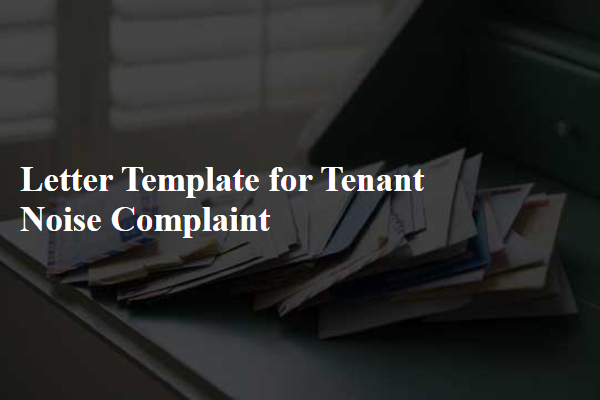
Recipient's information and address
Persistent noise disturbances within apartment complexes can negatively impact tenant well-being and quality of life. Common sources include loud music, late-night parties, and pet noises that disrupt peace during evening hours. Local noise ordinances in urban areas often restrict sound levels, particularly in residential zones. Management intervention is crucial, as effective communication can resolve conflicts. Tenants experiencing disturbances should document incidents (dates, times, descriptions) for formal complaints. Building managers must address such complaints promptly, ensuring compliance with lease agreements and fostering a harmonious living environment for all residents.
Clear description of the noise issue
Loud music from neighboring apartment units, often late at night, disrupts the peaceful environment in residential buildings such as those in downtown Chicago. Disturbances frequently occur around 10 PM, with sound levels exceeding 85 decibels, which is equivalent to a chainsaw noise. Complaints from multiple residents indicate inconsistency in the quiet hours policy, leading to frustration and diminished quality of life. Continuous thumping bass can be particularly disruptive, affecting sleep patterns and daily activities for those living nearby. Additionally, children and elderly residents face heightened stress levels due to repeated noise disturbances.
Dates and times of disturbances
Frequent disturbances from neighboring tenants can significantly disrupt the peace and quiet in residential settings. Common examples of disturbances include loud music, shouting, or other noise disturbances occurring during late-night hours, particularly between 10 PM and 2 AM. Notable incidents may include a party on September 15, 2023, from 11 PM to 1 AM, followed by another noise disruption on October 1, 2023, around midnight. These disturbances can be reported to property management, often prompting reviews of lease agreements that typically require tenants to maintain reasonable noise levels, particularly during designated quiet hours. Persistent noise complaints, if unresolved, may escalate to formal mediation or even legal intervention to uphold residents' rights for a peaceful living environment.
Impact on tenant's well-being or daily life
Excessive noise from neighbors can significantly disrupt a tenant's well-being and daily life. Consistent disturbances, such as loud music or late-night parties, can lead to anxiety and sleep deprivation, affecting overall health. For example, prolonged exposure to noise levels above 70 decibels (dB) can cause stress-related issues, including fatigue and irritability. Furthermore, the cumulative impact of these disruptions on daily activities, like work-from-home productivity or family routines, can strain relationships and hinder the ability to focus. A peaceful living environment is essential for mental health, making it crucial to address ongoing noise issues promptly to restore a sense of tranquility and normalcy.
Request for resolution or further action
Excessive noise from neighboring apartments can disrupt the peaceful enjoyment of living spaces, especially in urban areas like New York City, where sound travels easily through thin walls and shared hallways. Common sources of noise include loud music, barking dogs, or late-night gatherings, which can lead to sleep disturbances and stress for affected tenants. Management companies like XYZ Realty often have noise regulations in place to ensure tenant comfort, with specific guidelines detailing acceptable noise levels during designated quiet hours. Residents experiencing ongoing disturbances should document incidents, including dates and times, and report the issue to property management for potential mediation or further action, such as issuing warnings to the offending tenants or implementing noise-reducing measures within the building.
Letter Template For Tenant Noise Complaint Samples
Letter template of formal noise complaint to landlord regarding tenants.
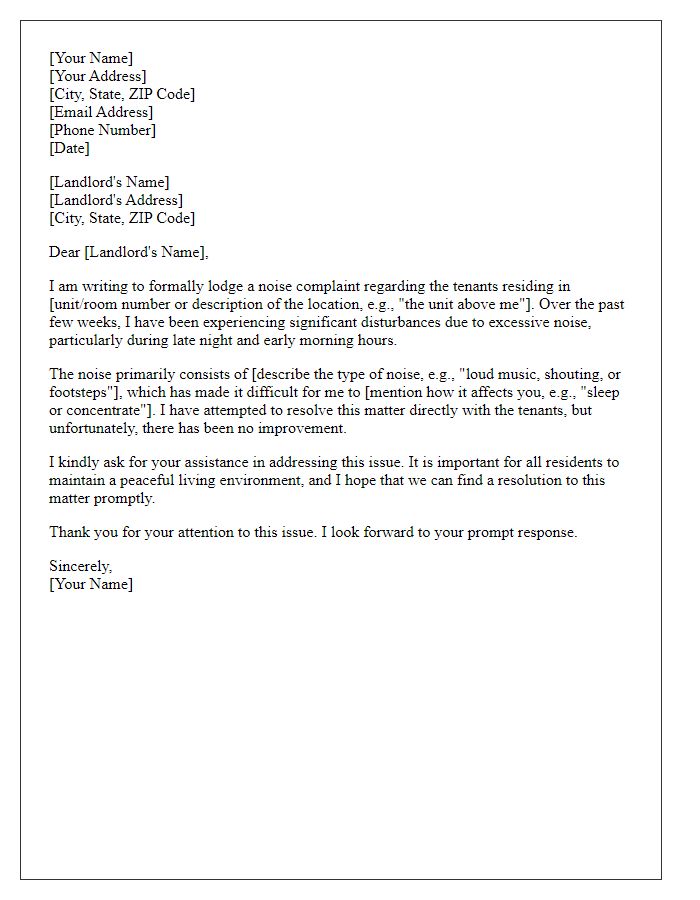
Letter template of complaint about excessive noise from neighboring tenants.
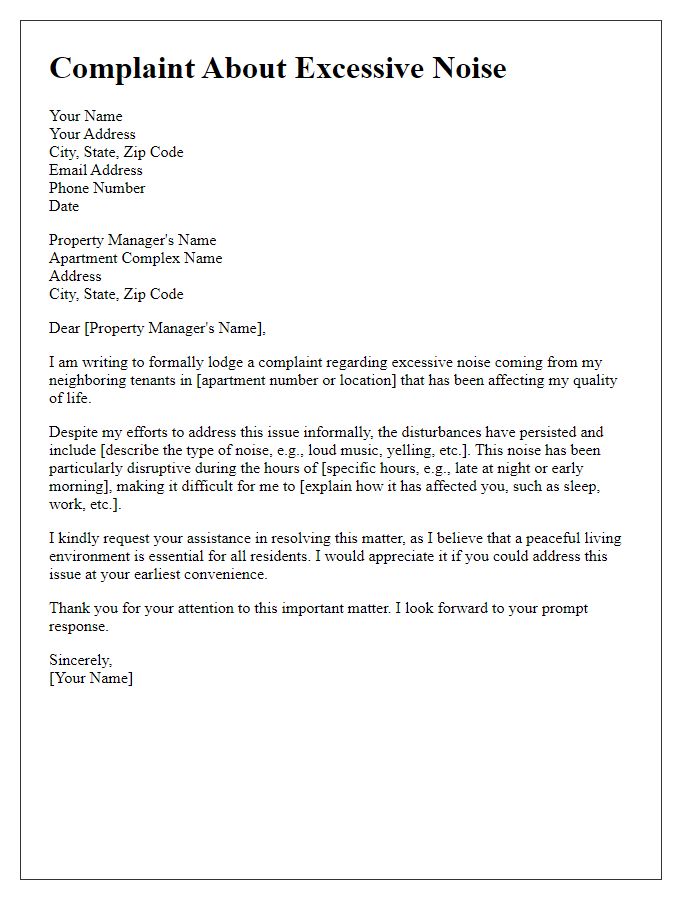
Letter template of noise disturbance notification for apartment management.
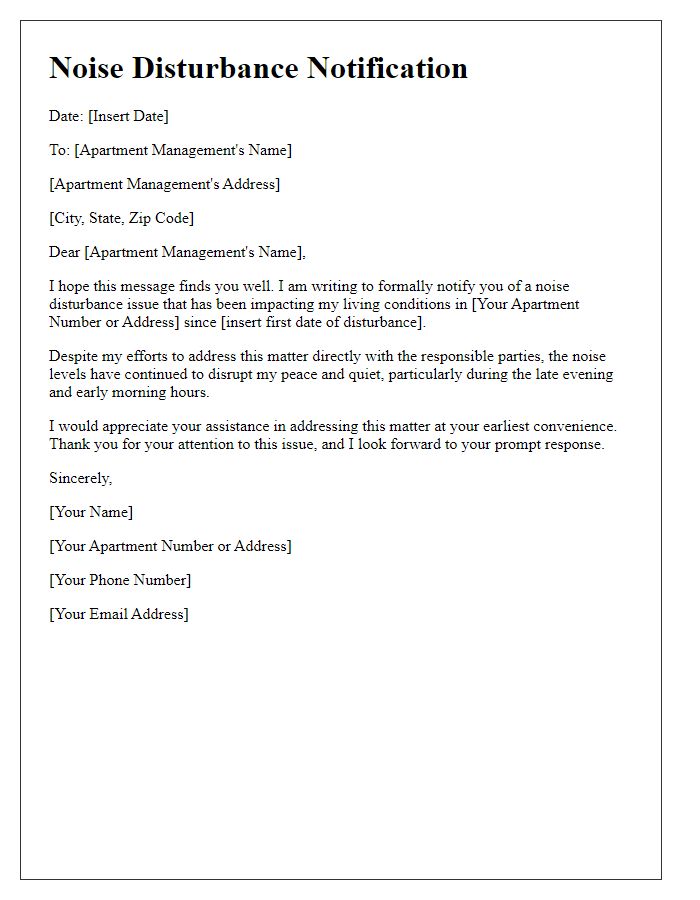
Letter template of urgent request for noise resolution for residential units.
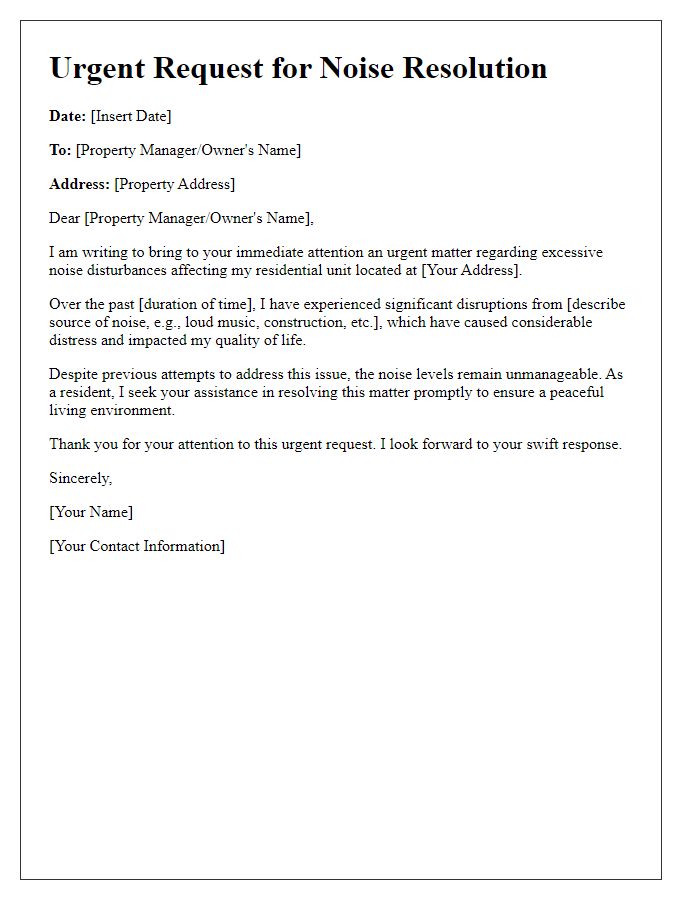
Letter template of documentation for persistent noise issues with tenants.
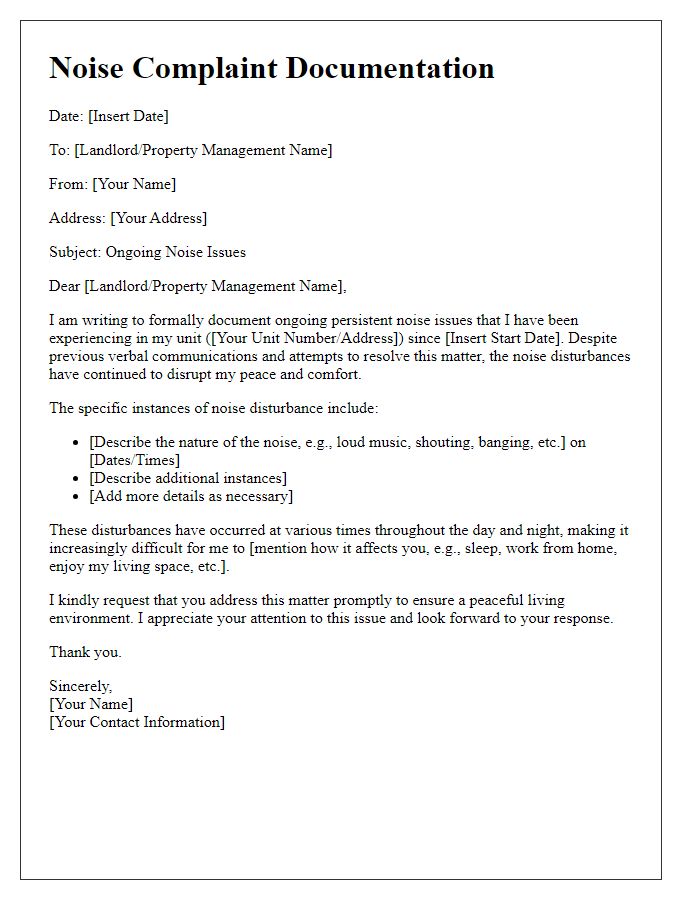
Letter template of request for mediation regarding tenant noise disputes.
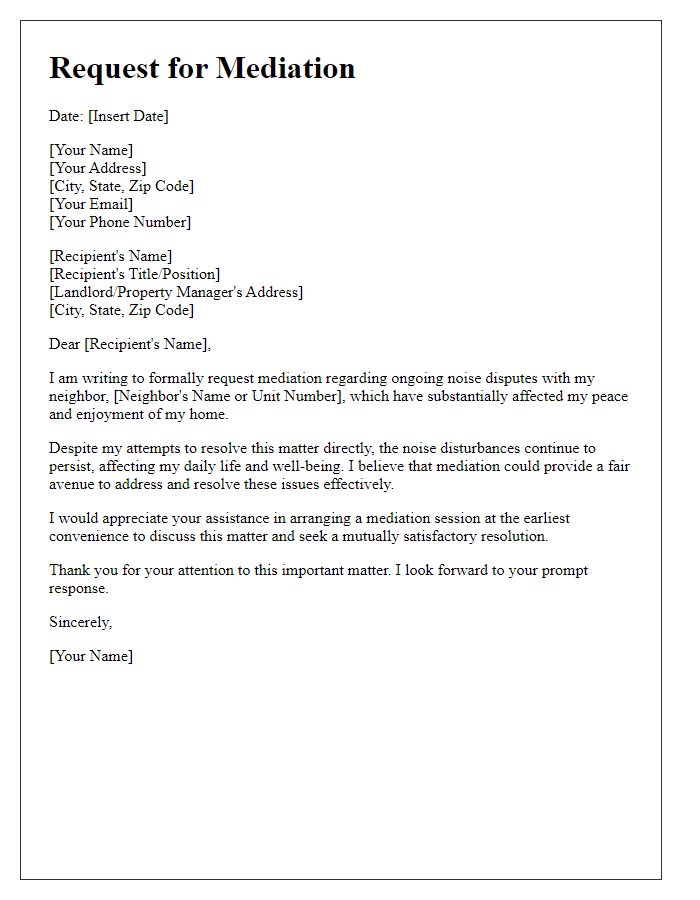

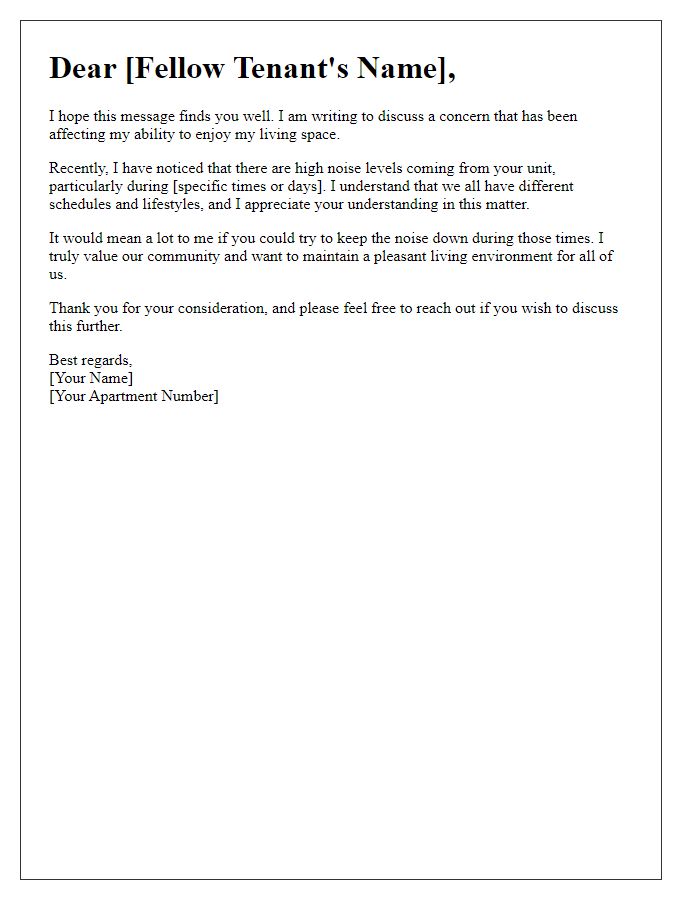
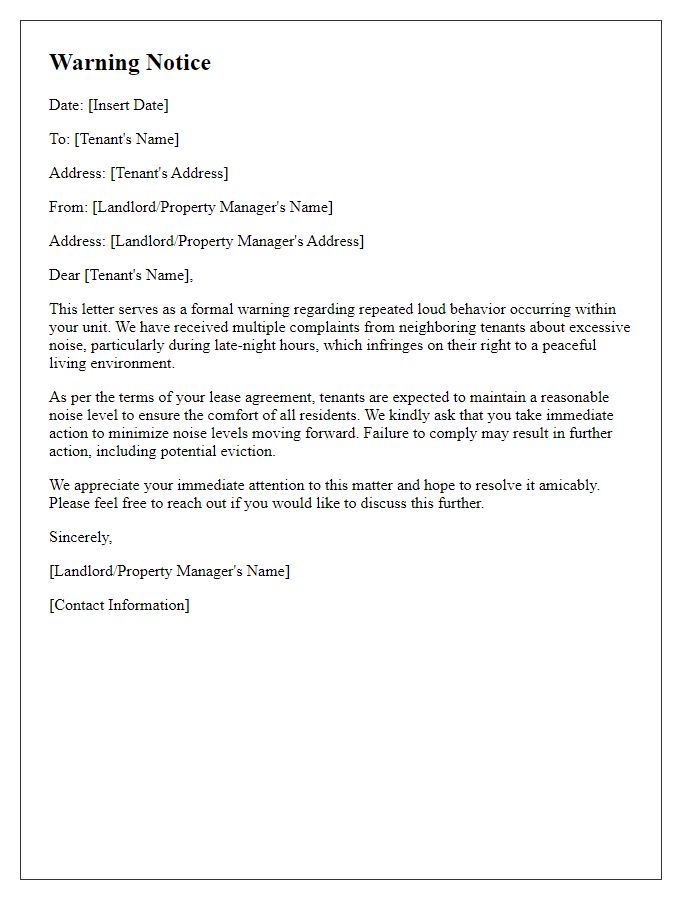
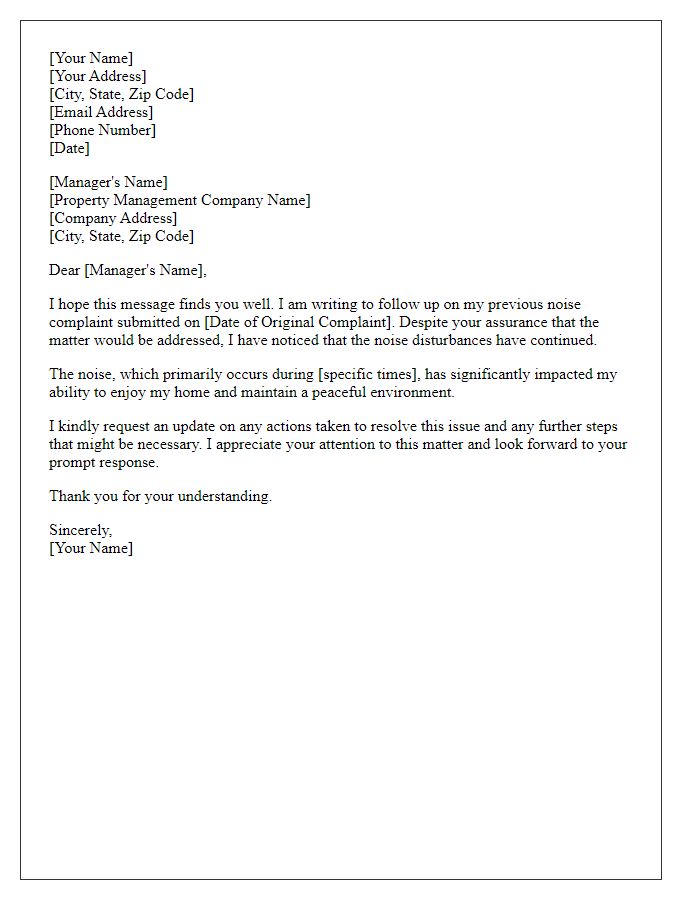
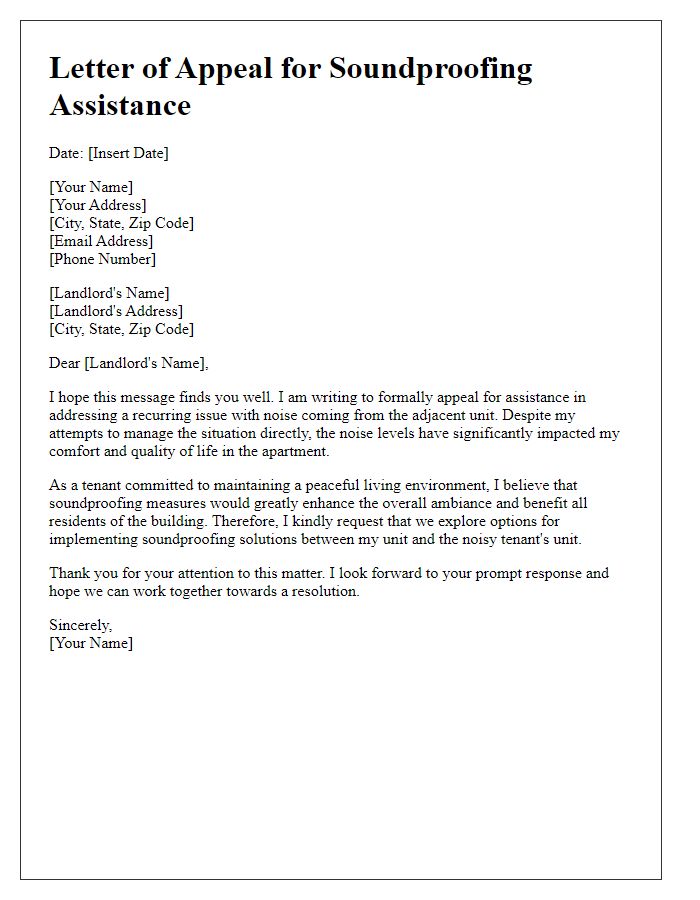


Comments